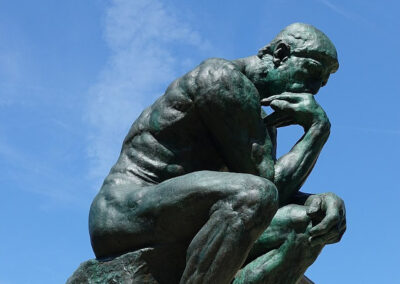THE ENGLISH LEGAL SYSTEM
Much of what is below is commonly accepted; little enough substantively speaking is done about it save in some individual cases. An overall picture of what many of us may think idly about English Law may serve to file some teeth of legal watchdogs?
If the law supposes that,” said Mr. Bumble, squeezing his hat emphatically in both hands, “the law is an ass — a idiot. If that’s the eye of the law, the law is a bachelor; and the worst I wish the law is, that his eye may be opened by experience — by experience.”
– Charles Dickens
***
We all but give up on the ideal of Fairness for All as being attainable. We shrug our shoulders at the manifest cases of injustice that can shock. High flown language and a magisterial line is taken, while at the same time we wish to believe that justice is fair in our systems. And yet, and yet, there are so many cases of manifest injustice meted out in law courts that a body constituted to continuously review the system as a whole, as opposed to the piecemeal progress that comes from individual cases before the Court of Appeal in England and law-making in Parliament often owing much to public outcry rather than steadfast principle.
The idea that there is a threshold point in almost all systems known to man and nature after which the rules – that have held good up till that point – no longer apply does not seem to have permeated the thinking of the legal profession. (See above section on ‘the threshold point’).
A legal framework could hardly function if there were no set principles but that is not the be-all and end-all in having a legal framework. There are other purposes such as Justice. In some of the greatest law-giving systems in antiquity exceptions to the rule were built into the system. Both Elijah (see Book of Ruth) and Gideon were allowed even to take the name of the Lord in vain when circumstances for the preservation of the law justified it.
The Napoleonic Code and Common Law are not the same; and have different laws; which is right, and in which circumstances? A law of precedent proceeds in essence from the wisdom of the past but is this right in all circumstances at a present time? It can seem to a lay observer that much of divorce law, for instance, hails fundamentally from a time when there was no major career path open to women but that of marriage; how fit is that from an age of Women’s Rights and equality of the sexes?
We are amused at the proverb that it ‘rains more on the Just than the Unjust because the Unjust steals the Just’s umbrella.’ We snigger that the Emperor Caligula planned to make his favourite horse, Incitatus, a Consul but seem resigned to a Justice system where the law is said to be an ass. We object to Sharia courts being set up in this country because we are all to be under one law where Certainty Rules OK – but isn’t Justice itself in each individual case in often unique circumstances the priority? In a Loya Jurga in Afghanistan, tribal Elders, who know of the circumstances of disputants, gather in a circle and hear all sides and their rulings are respected by common consent. In England, it is virtually the opposite case, where acquaintance with a disputant allows a judge to abstain from involvement in case. If two opponents in a civil lawsuit both opt for an arbitrator of their ken, this idea has no chance of success. In ancient China, courtrooms could be replaced by homely settings for mealtimes, the idea being that the breaking of bread with adversaries round a table was more likely to induce a compromise acceptable to all sides.
Law like religion has to be a code for everyone not tailor-made for any individual; there is no help for it but the fact should be acknowledged. In the British legal system, any juror or Judge who knows the disputants personally is excused from duty on the case. The idea is to take an objective line, free of personal prejudice. In affairs where a large and specialised corpus of knowledge is called for, commercial law for instance, the application of good sense to a given situation may not be enough, it being understood neither side might be guilty in the sense of having evil intent, but that is not the case in many situations involving, for instance, diplomacy and politics. Juries and arbitrators can be called to discuss law, so the same principle might be legitimately in play in other areas of our lives, and, importantly, as in the legal instance just cited, they would be more likely to be seen as free of the taint of personal interest.
What is needed above all is Fair Dealing but sometimes the chance of that happening depends on extraneous circumstances like the fact that our courts are overloaded with backlogs so arbitration panels like ACAS, where simple common sense prevails, are pressed into service.
Categories rule, OK! Or not OK? Some civil cases are more civil than others. When does a difference in degree become a difference in kind? In some civil cases, another tier of justice might be institutionalised comprising, say, of arbitrators, or of citizens, who know the dramatis personae. Is it always the case that arbitrators who do not know the squabbling parties can best determine the rights and wrongs? Each, ideally, according to its’ circumstances rather than of one size fits all. If both parties in a civil dispute wish for and agree to be bound by a juridical panel on whose composition they agree, it might be fairer than sometimes the prohibitively high cost, often more unfair on one side, involved in the current customary procedures. Why should those with deeper pockets be more likely to secure verdicts congenial to them and often be able by virtue of their resources be able to bring an action in the first place? Where is the justice in that?
It will be said that there is no way on this earth that an ideal of fairness is within reach, so what is needed inter alia are sensible rules and certainties. It is a good argument as far as it goes but it is not the only argument. The very attempt at implementation of a perfect system itself can displace pieces of an overall mosaic; the best constitution ever, according to some, the Wiemar Consitution of 1932, fell flat at the first gusts of strong wind. The English legal system ideally may be about fairness for all but is that the whole truth of it and nothing but the truth?
***






